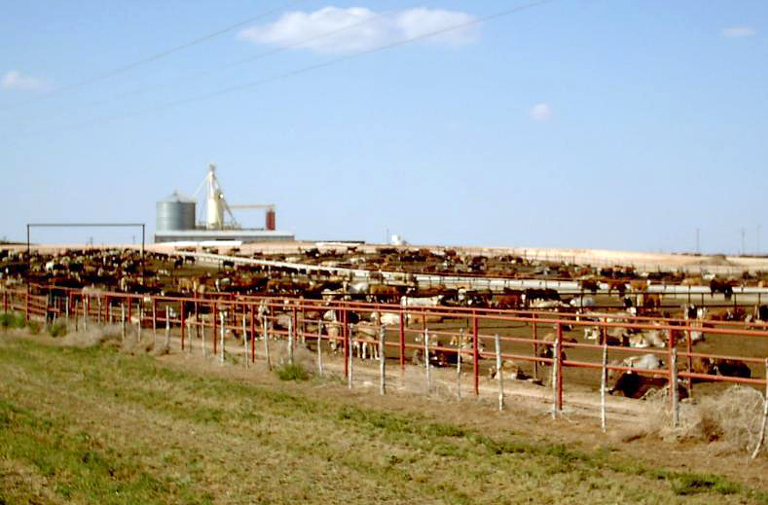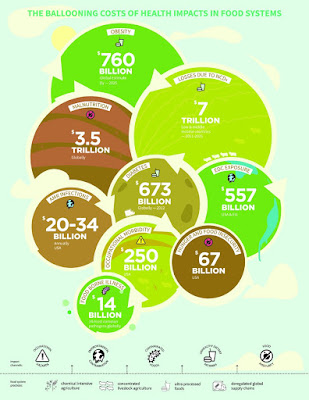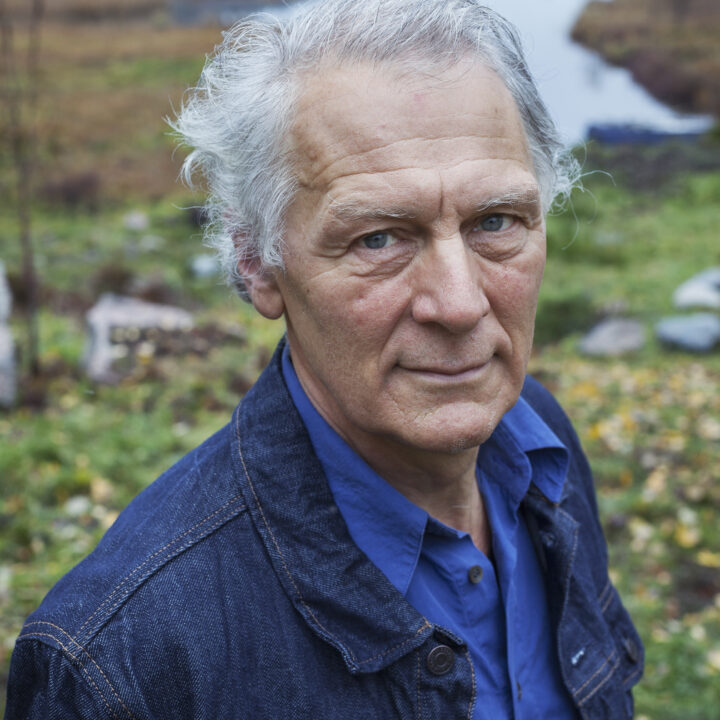People get sick because they work under unhealthy conditions.
People get sick because of contaminants in the water, soil, or air.
People get sick because specific foods they eat are unsafe for consumption.
People get sick because they have unhealthy diets.
People get sick because they can’t access adequate, acceptable food at all times.
A recent report from the International Panel of Experts on Sustainable Food Systems identifies these five mechanisms whereby the current food system makes people sick.
The report calls for a reform of the food and farming systems to be made on the grounds of protecting human health. Many of the most severe health are caused by core industrial food and farming practices, such as chemical-intensive agriculture; intensive livestock production and the mass production and mass marketing of ultra-processed foods. They are in turn stimulated by the deregulated global trade.
Because of all interconnections in the complex food system it is not possible to always ascertain exactly the causes of a particular problem, but we know enough to act, according to the report. Even if the industrial food and farming model is not the only cause of the problems, it has clearly failed to provide solutions to them. The health effects are strongly linked to environmental effects and social issues.
It is all too convenient for the industrial food system to place the responsibility of dietary choices with the consumers, when in reality they are the choice architects and they constantly influence consumers to consume highly processed foods made from a limited range of industrial raw materials. In addition they influence both research and policy for their own benefits.
The report make five key recommendations to address the shortcomings of the current system.
- Promoting food systems thinking;
- Reasserting scientific integrity and research as a public good;
- Bringing the alternatives to light;
- Adopting the precautionary principle; and,
- Building integrated food policies under participatory governance.
While there is nothing wrong with these recommendations, I find that they fall short of addressing the main drivers of the current system. As long as there is unfettered global competition, the drive to externalise costs will continue; the ever increasing specialization expressed as monocultures and industrial livestock systems will continue; the consolidation in the food chain will continue; the use of agro-chemicals will continue. As long as food is a commodity with its main purpose is to be consumed, the food industry’s and retailer’s incentive to make us consume more of processed food will continue.
Teaser photo credit: By H2O – own picture/copied from en:Image:Feedlot-1.JPG, CC BY-SA 3.0, https://commons.wikimedia.org/w/index.php?curid=931624







